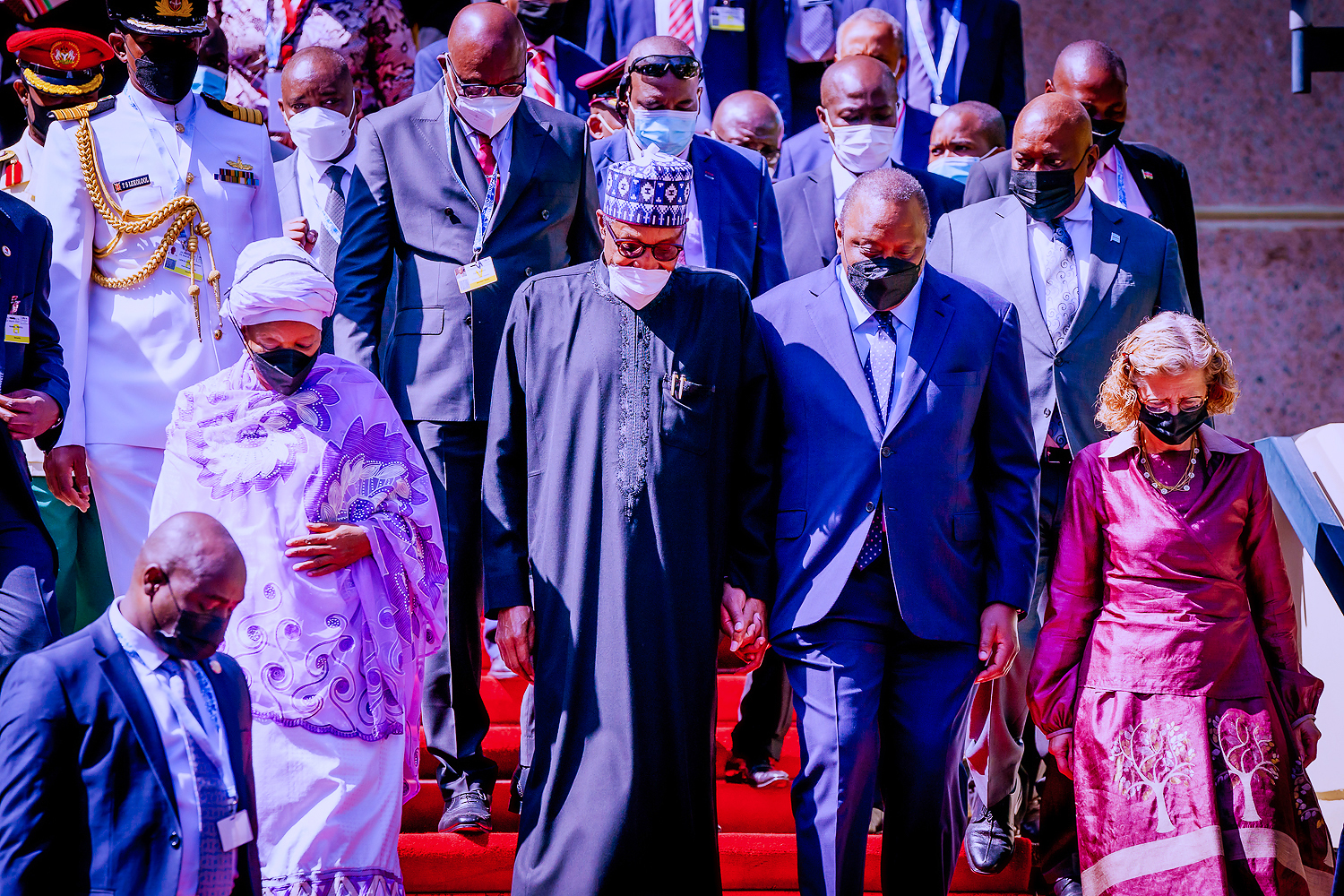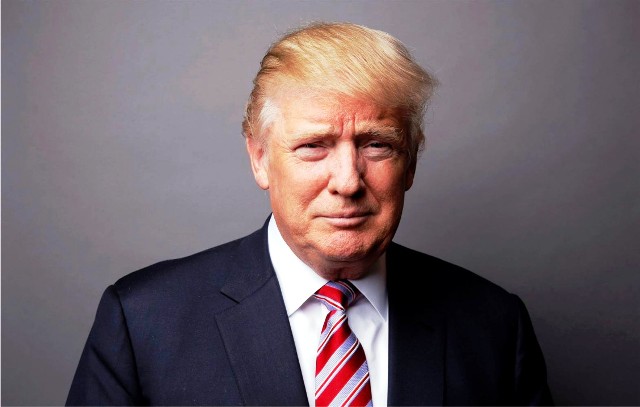Editorial
End Ukraine’s Invasion, Now!

Ukraine’s intrusion by the Russian Federation after months of enormous military build-up has spurned the world, threatening to kindle a large-scale war involving notable world powers.
Russian forces bombarded from conglomerate fronts, including from Crimea, whichVladmir Putin had appropriated in 2014 and from two breakaway provinces that had seceded with the Russian military’s support, and from Belarus. Explosions rocked Ukrainian cities and ground forces penetrated backed by tanks, artillery, warplanes and attack helicopters.
The stratagem espoused by Russian troops in Ukraine raises forebodings of a looming humanitarian cataclysm, with the progressively variegated air assault of civilian areas inflaming a spiralling death toll and spawning a wave of refugees scurrying the country for the neighbouring nations. Given Putin’s record as a pillager of cities such as Grozny and Aleppo, these concerns are more than vindicated.
With Russian forces closing on Ukraine’s capital, Kyiv, and the government requesting its three million people to take up arms, Putin’s war may avail pogrom. It is the most preposterous infraction of another country’s sovereignty since Iraq under the late Saddam Hussein overswarmed and “annexed” Kuwait in August ,1990. Whichever means the world mobilised to expel the Iraqi invaders, it must rally to halt Putin’s tyranny.
In his efforts to exculpate the invasion of Ukraine, the Russian President has made multifarious uncultivated claims of a “genocide” committed by the Ukrainian authorities against the population of Russian-occupied Eastern Ukraine. These unsubstantiated allegations are all the more sneering given the very real genocidal potential of the war Putin has now unleashed.
The photographs transmitted from the streets of Ukraine have renewed the flashbacks of the wars of the 20th century, of a type that once seemed inconceivable in 2022. Many have been left to speculate: is it a new cold war or the beginning of a third world war? Ukrainian President, Volodymyr Zelenskyy, appears to be receiving favourable responses as he obtains further weapons. That is why several options need to be on the table to avoid imminent disaster.
The origin of the current war dates back to the beginning of Putin’s reign and reflects his unwholesome obsession with Ukraine. He has never made any attempt to conceal his contempt for Ukrainian independence, which he regards as an accident of history and the most painful of the many injustices brought about by the 1991 Soviet collapse.
Putin must be cut short and impelled to depart Ukraine. Should he be indulged to get away with his nihilistic act, he could move on to other irresolute neighbours, invigorate similar despots and ultimately retrogress the relative peace the world has relished since the end of the World War II in 1945. His brigandage harks back to a contemptible past of stronger powers making unattainable demands on decrepit neighbours, marauding, and annexing them.
The threats exchanged by Russia and United State-led NATO have taken a precarious turn as Moscow announces a nuclear alert. It is the second time the world has come close to a nuclear war. As the war exacerbates, Putin’s rhetoric has become shrill. He has put his country on nuclear alert, sparking outrage and denunciation from the US and its allies. Many quibble that Putin’s nuclear sabre-rattling has brought the world to the 1962 period designated the “Cuban Missile Crisis.”
Aside from his hankering, the Russian tyrant wants assurances from Ukraine that it would not seek NATO and EuropeanUnion (EU) membership. It claims that the request is imperative for its security. Ukraine has shunned such demands as an abdication of its sovereignty. Besides, the two breakaway and rebel-held Donetsk and Luhansk domains not only disinherit the country of colonies, but they also persist in claiming most of the rest of Ukraine as theirs.
Meanwhile, the world has reacted with anger. Financial sanctions imposed by the US and Western allies are smothering the Russian economy. The country’s economy has begun to founder under the pressure of exceptional penalties. The US and EU are preventing certain Russian banks from access to the Society for Worldwide Interbank Financial Telecommunication (SWIFT), a messaging system utilised by banks to operate transactions.
Russia’s decision to exact a military solution to the political question of Ukraine is a criminal blunder reclining on a might-is-right contention. Russian officials claim to be open to talks, but Putin’s description of the Ukrainian government as “a band of drug addicts and neo-Nazis” shows Moscow is unserious. Care must be taken as the world slides into a protracted international struggle for spheres of influence among great powers.
We insist that Ukraine is a sovereign nation that should be free to decide its destiny, including establishing economic, political and even military relationships with any bloc. Russia cannot dictate to it. It is perhaps a long and hard task, but the world should be firm on this principle of the inviolability of the sovereignty of one country by another. The United Nations must step up to liberate Ukraine.
At this moment of superlative danger, it is essential that the Russian President and sole originator of this pointless scourge, execute an instantaneous armistice. Militarily, he has miscalculated, diplomatically, he is isolated, as the UN Security Council’s denunciation of Moscow’s actions shows. Even his citizens have declined to endorse this noxious aggression. At home, his war is aggravating extensive revolts and turmoil.
Putin crossed every conceivable red line and suddenly turned his country into an international pariah. He must pay a huge price for his action. While we call for discretion and a relaxation of positions, we must exert pressure on the Russian leader to end the chess game in Ukraine. The world powers must, willy-nilly, arrive at a consensus as quickly as possible before someone clasps a button.
Editorial
New Federal Varsity In Ogoni

President Bola Ahmed Tinubu has made history by signing into law a bill that establishes the Federal Univer-
sity of Environment and Technology in Ogoni, Rivers State. This significant occasion marks a bold step forward not only for the Ogoni people but also for the Niger Delta region and Nigeria as a whole. It signifies a commitment to education, environmental sustainability, and technological advancement.
For the Ogonis, who have long been impacted by environmental challenges, the university represents a beacon of hope. It is more than just bricks and mortar; it is a symbol of empowerment and a pathway to a brighter future. This development is akin to a seed, planted with the promise of a flourishing harvest of skilled professionals.
The university’s emphasis on environmental technology is extremely important, especially given Nigeria’s climate crisis. Education plays a crucial role in developing sustainable solutions. The institution will provide students with the necessary skills and knowledge to address the environmental challenges affecting the Niger Delta region and beyond. This will have a momentous impact.
Signing the bill, the President praised the Ogoni people’s resilience and unity. He stressed that the institution would mark a “significant milestone in our national journey towards environment justice, education and sustainable development”. Tinubu said the university is a reaffirmation of his administration’s “unwavering commitment to the people of Ogoni, the Niger Delta and the nation as a whole. For decades, the Ogoni people have been at the forefront of fight for environmental restoration and sustainable development, shaping both national and global conversation of these critical issues.
“By signing this bill into law, we are taking a decisive step towards addressing historical grievances and creating new opportunities for learning, growth and prosperity. The university will serve as a centre of excellence, equipping young Nigerians with the knowledge and skill to tackle present environmental challenges, drive clean energy solutions and contribute to our national sustainable economic development.”
We commend President Tinubu for his visionary decision to establish the much-needed institution aimed at fostering development and progress. This initiative is a testament to his commitment to addressing critical social and economic knots and creating opportunities that will benefit the people. The President has laid a solid foundation for sustainable growth while demonstrating a genuine desire to empower and advance the nation’s collective interests.
In addition to his commendable action, we applaud Tinubu for initiating peace talks to bring stability and reconciliation to the troubled area. The decision to engage in constructive dialogue demonstrates a deep understanding of the relevance of inclusive governance and the role of peace in fostering meaningful development. For decades, Ogoni has endured turmoil and neglect, impeding its potential and the return of oil exploration activities.
By opening the door to peaceful negotiations, the President has made a bold and necessary move towards healing fractured relationships and fostering trust among stakeholders. This initiative holds the promise of ensuring that the voices and needs of the Ogonis are heard and respected. We urge all parties involved to seize this golden opportunity for lasting peace and progress. It is only through unity and mutual respect that the full potential of Ogoni, and by extension the nation, can be realised.
As steps are taken to acknowledge and remediate the damage caused by years of oil exploration and production, the Ogonis must reciprocate Mr. President’s gesture by fostering a climate of equanimity and stability. This will ultimately pave the way for the resumption of oil exploration and production. This is not a call to forget the past, but a pragmatic recognition that meaningful change and sustainable development require a collaborative approach.
The Federal Government has a responsibility to ensure that all academic disciplines offered by the new university are fully accredited to maintain the integrity and quality of the school. Without proper accreditation, the institution risks producing graduates who are ill-equipped to compete in the global workforce or contribute substantially to national development. Accreditation serves as a benchmark that ensures programmes meet academic standards and adhere to best practices across various fields of study.
Staff recruitment should be conducted carefully, as the individuals brought into a team can greatly influence an organisation’s performance, culture, and long-term success. The primary focus of recruitment efforts at the university should be on attracting the best candidates who possess the necessary skills, qualifications, experience, and values. Merit should be the guiding principle in decision-making throughout the hiring process, rather than favouritism or personal bias.
For a nation to thrive in the 21st century, a strong higher education system is not only desirable, but essential. Universities serve as the catalysts for innovation, the breeding grounds for future leaders, and the foundations of a knowledge-based economy. The Federal Government must acknowledge this vital role and take intentional actions to properly fund the university in Ogoni and develop infrastructure to ensure it meets international standards. Neglecting this responsibility would put its future prosperity and global competitiveness at risk.
This institution must not suffer the same fate as other federally-owned universities that have been left to decay. That will be a disservice to its purpose and potential. Many government-owned universities in the country have struggled with dilapidated infrastructure, underfunding, insufficient staffing, and interruptions caused by industrial actions due to unpaid wages or poor working conditions. These challenges have led to declining standards in education, putting both students and staff at a disadvantage. The Ogoni University must not be another victim of this worrying trend.
Editorial
HIV, Transiting From Donor Dependence

The initial announcement by United States President, Donald Trump, to cut funding for international
HIV/AIDS initiatives sent shockwaves through the global health community. In Nigeria, a country facing a significant HIV/AIDS burden, the potential consequences were dire. However, the subsequent waiver granted by the administration has provided a lifeline for the millions of Nigerians who rely on the President’s Emergency Plan for AIDS Relief (PEPFAR) for their treatment and support.
PEPFAR has been an important partner in Nigeria’s fight against HIV/AIDS. Since its inception in 2003, PEPFAR has committed more than $7.8 billion to the country, catering to approximately 90 per cent of HIV treatment requirements. With this funding, Nigeria has been able to enhance its HIV prevention, treatment and support services and has witnessed a reduction in HIV/AIDS deaths.
The waiver granted by the Trump administration guarantees that PEPFAR’s life-saving medicines and medical services will continue to reach the needy. Antiretrovirals (ARVs) are the most common type of medicine used to treat HIV and reduce the virus’ spread. Through the provision of ARVs, PEPFAR helps prevent the spread of HIV and enhances the quality of life of those with the condition.
Although Nigeria was recently exempted from the requirement, the signs are evident: the country has to graduate from dependence on donor funds for its HIV/AIDS control programmes. Over the years, partners including the U.S. government have been central to the provision of treatment to people living with the virus. However, it is time for Nigeria to own its national response to HIV/AIDS.
Nigeria’s HIV/AIDS burden remains critical, accounting for 10 per cent of the global total. In 2023 alone, there were 75,000 new infections and 45,000 HIV-related deaths. The battle against Mother-to-Child Transmission remains challenging, with only 35 per cent of the target 75 per cent being met. Nearly 1.7 million Nigerian children have been orphaned due to HIV. Vulnerable populations, especially women and children, continue to disproportionately suffer.
To transition away from donor dependence, a multifaceted approach is necessary. Firstly, the country must increase its domestic financing for HIV/AIDS programmes. This can be accomplished through innovative funding mechanisms, such as leveraging public-private partnerships and exploring local revenue sources. Secondly, the government needs to strengthen its healthcare system to ensure equitable access to testing, treatment, and care. This involves expanding access to antiretroviral drugs, investing in community-based models, and addressing the stigma associated with HIV.
Thirdly, Nigeria must prioritise prevention efforts. This entails promoting condom use, providing comprehensive sexual education, and increasing awareness about the risks and modes of transmission. By focusing on prevention, the country can decrease the incidence of HIV infections and ultimately lessen the burden on its healthcare system.
Finally, Nigeria should develop a sustainable human resource strategy for its HIV/AIDS response. This involves training and equipping healthcare workers, engaging community volunteers, and empowering people living with HIV to advocate for their rights. A well-trained workforce is essential for delivering high-quality services and ensuring the long-term success of the response.
The transition beyond donor dependence is a complex but necessary journey for the country. By increasing domestic financing, strengthening healthcare systems, prioritising prevention, and investing in its human resources, the country can create a sustainable and effective response to HIV/AIDS. Also, the government should consider alternative funding mechanisms, such as increased domestic funding, public-private partnerships, and philanthropic initiatives. The time to act is now, for the well-being of present and future generations.
Nigeria’s National Agency for the Control of AIDS (NACA) has made momentous strides in combating HIV/AIDS, including expanding access to testing, treatment, and education. However, challenges persist, hindering the effectiveness of these efforts.
One major obstacle is limited access to healthcare facilities, particularly in rural areas. This impedes timely diagnosis and treatment, reducing the likelihood of optimal outcomes for those living with HIV. Additionally, stigma surrounding the disease remains a formidable barrier, preventing individuals from seeking testing and care. Inadequate awareness campaigns further contribute to low testing rates and delayed diagnosis.
Addressing these challenges requires concerted action by the government and stakeholders. Allocation of adequate funding is crucial to expand healthcare infrastructure and ensure the availability of essential services. Moreover, targeted interventions to reduce stigma and promote awareness are vital for increasing testing and early detection.
Collaboration between civil society organisations and grassroots movements is also essential for advocating for protection of HIV funding. Advocacy campaigns can mobilise public support and pressure lawmakers to prioritise the fight against HIV/AIDS. By addressing these challenges and ensuring sustainable funding, Nigeria can depend less on donor countries, drastically reduce HIV transmission, and provide the necessary care to those affected by the disease.
Editorial
Israel-Gaza War: Sustaining The Ceasefire

-
Business4 days ago
NCDMB Assures Samsung Of Support On Oil/gas Industry Projects
-
Sports4 days ago
NSC, NFF Visit proposed Abuja hotel, training pitch
-
News13 hours ago
Protests Mar Oil Resumption Congress In Ogoni
-

 News11 hours ago
News11 hours agoOgonis Commend Tinubu Over Dialogue Meeting
-
Nation4 days ago
Simplified Leader Lauds Knight For Building Church
-
Opinion3 days ago
It’s ECOWAS Of People, Not Coup Plotters
-

 Politics13 hours ago
Politics13 hours agoBode George Kicks Against State Creation, Opts For True Federalism
-

 Education11 hours ago
Education11 hours agoEbonyi NUT Declares Indefinite Strike In Seven LGAs

